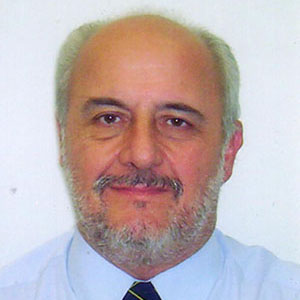
Michael Callifronas
Country: Greece
Organization: HAPCEA
Short CV
Michael Callifronas is a medical doctor (NKUA) and a certified person-centred psychotherapist (ECP). He holds a postdoctorate in Laboratory Endocrinology (Univ. Paris V) and postgraduate diplomas in Clinical Pharmacology and Toxicology (Univ. Paris VII), Counseling (Strathclyde Univ.), Focusing Experiential Psychotherapy (East Anglia Univ.) and Clinical Supervision (Derby Univ.). He is the author of many studies and reviews in english and greek journals on endocrinology, diabetes, psychotherapy, clinical supervision, anger management and epigenetics. He is also the author of one book and editor/reviewer for journals. He is the president of the Hellenic Institute of Psychotherapy, while he was the founding president of the Hellenic Person-Centered and Experiential Association. He works with psychotherapy groups, chronic illness therapy, anger and assertiveness groups, parenting skills and self-esteem groups, as well as individual and group clinical supervision.
Email address: michael@callifronas.com
Short presentation
Title: Nature or nurture? An empathic view to genes expression!
According to Piaget a newborn has no self awareness, its world is defined as a flow of non symbolised and non differentiatedexperiences of the ‘here and now’. During the first months it starts slowly to symbolisethe first symbols, e.g.the mother’s embrace, the kiss, the rattle etc.
Acurate symbolization needs a secure parent-child bond. Parents need to show empathy and acceptance without criticism and comparisons with his close environment. This was also seen in the – classic – temperament study by Chess and Thomas (1990), where 133 children were studied for 33 years from childhood until their professional activity. A good parental relationship with rich stimuli led “the child” in a smooth development until adulthood and was accompanied by the achievement of personal goals. A less stable relationship with ‘significant others’, with conflicts and tensions, often led to secondary problems in the child’s health, development and behaviour.
Today, we know better the neurobiological mechanisms that allow the exact symbolisation of experiences without distortions and value-based references, whether it’s about parenting or psychotherapy.
In our presentation we will address the important contribution of epigenetic science to therapy, identifying the neurobiological main pillars on which Person Centered Therapy is based (Motschnig-Pitrik & Lux, 2008; Savite 2020; Silani, Zucconi, & Lamm, 2013,). Specifically, we will discuss the pathways that this approach uses to intervene in both the limbic system and the cerebral cortex, ensuring the right conditions for processing existing distortions and enriching accurately symbolized experiences.
These therapeutic conditions create the pillars for the development of the personality of the child and the adult with the gradual achievement of personal goals, thus enhancing the expression of the actualising tendency by helping to create more links between the self and the organismic orientation.
References available upon request:
Motschnig-Pitrik, R., & Lux, M. (2008). The person-centered approach meets neuroscience: Mutual support for CR Rogers’s and A. Damasio’s theories. Journal of Humanistic Psychology, 48(3), 287-319.
Savite, S. (2020). The Neurobiology of Carl Rogers’ Person Centered Approach: A Comprehensive Review and Theoretical Proposal (Doctoral dissertation, Pepperdine University).
Silani, G., Zucconi, A., & Lamm, C. (2013). Carl Rogers meets the neurosciences: Insights from social neuroscience for client-centered therapy. Interdisciplinary Handbook of the Person-Centered Approach: Research and Theory, 63-78.

